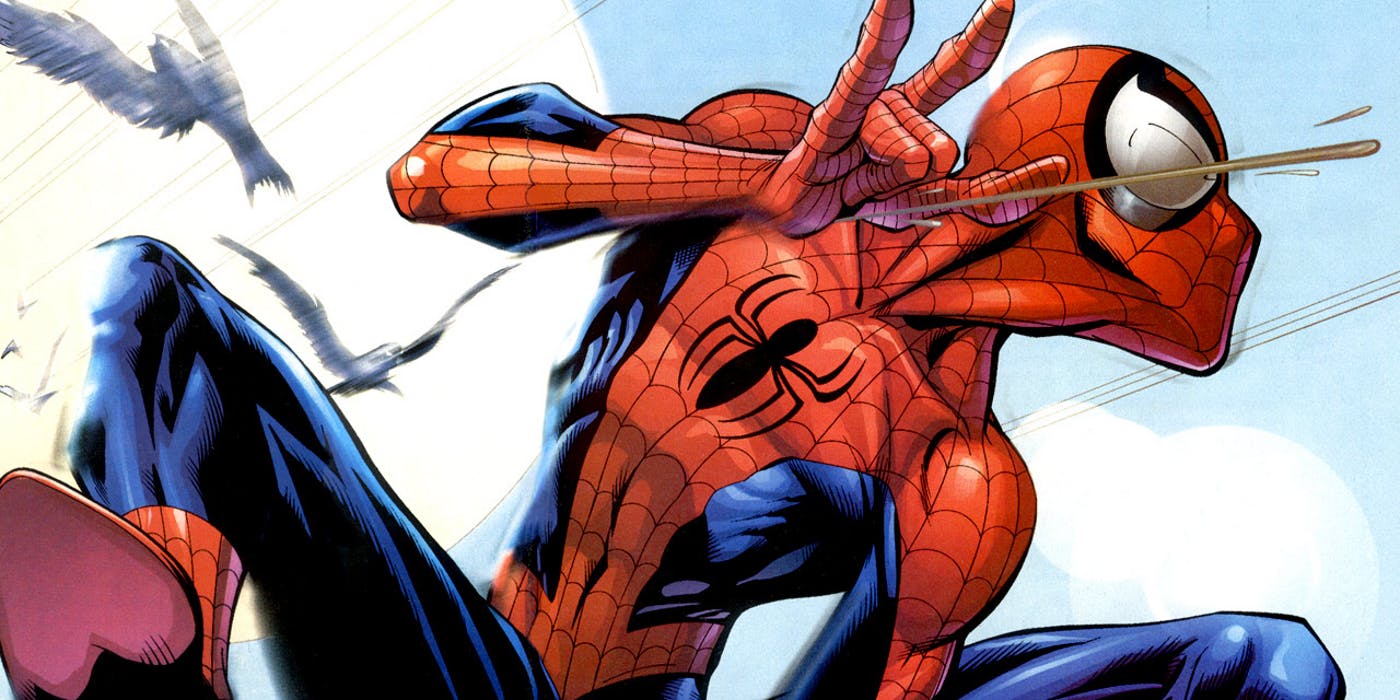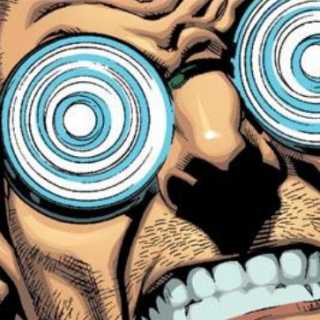
Characters die in comic books all the time, to a point where it has almost become a necessity to kill of a few heroes a year. Every time we see it in the news we all give a collective ‘sigh’ and brace ourselves for impact. But are we too skeptical when it comes to comic book deaths and where does our skepticism come from? Let’s delve in and find out.
A Growing Problem
Let’s face it, comic book fans are no strangers to death and rebirth. Can you honestly picture an event from the last decade that didn’t involve the death of a pivotal character? Then, within a couple of years, I can guarantee you that the same hero came back in a ‘ground-breaking’ comic that ‘shook the Marvel Universe to its core’. And we probably bought it. And probably complained. For a while, comic books attempted to hide the deaths or at least tried to do it with a degree of subtly. But in more recent years, death has been thrown in our faces like it’s a fundamental aspect of the storytelling world. I haven’t read Death of Wolverine yet but I’m pretty sure I can guess what it entails.
Over the years we Spidey fans have had to deal with our fair share of character deaths, ranging from Uncle Ben to Dr. Kafka. But, fortunately, it looks like the future of Spider-Man is controversy free.
MARVEL ANNOUNCE ‘DEAD NO MORE’, A NEW SPIDER-MAN EVENT SURROUNDING THE RETURN OF A LONG-THOUGHT DEAD CHARACTER.
Okay, it looks like we’re talking about this then.
Back to the Beginning
If we’re going to look at Spider-deaths, our journey must begin where it all started – Amazing Fantasy #15. Uncle Ben’s death holds a strong place in the hearts of many comic book fans due to the impact the character made in such a short appearance. When Peter first got his ‘Amazing’ powers he used them for personal gain, wrestling Crusher Hogan and appearing on TV. But when Uncle Ben dies, Peter’s character is completely redefined. From that moment on, he lives his life by the immortal words “With great power must also come great responsibility.” This death is iconic and no comic book lover would ever raise an issue with it.

But why?
As the readers, we did not have enough time to get to know Uncle Ben so his death doesn’t resonate with us emotionally. However his death did have an impact on Peter’s life. It inspired our hero to become the ‘spectacular’ character we’ve come to love (okay, I’ll stop the adjective puns now). Without the death of Uncle Ben there would be no Spider-Man – he is the catalyst for the stories we all know and love. Fans do not take issue with this death because it is such a vital part of what makes Peter who he is. But if we’re really going to get to the bottom of a good death, we cannot look at just one.
Fallen Friends
Gwen Stacy and Jean DeWolff. At first, that seems like an odd combination. But when I started to think about these two deaths, I realized what made them so great – each one tested Peter to his limits. When Gwen died, Peter entered a mad rage and almost killed the Green Goblin. When DeWolff died, Peter lost control once again and it took the efforts of Daredevil to rein him back in. These deaths pushed Peter to the edge, forcing him to redefine himself once again. He had to relearn the lesson that killing is not the answer. Unlike Uncle Ben, Peter did finally get over the deaths of these two characters. Despite this, losing these two characters still forced Peter to look at what being Spider-Man meant.

So have we solved it then? Is the perfect death one that redefines a character? If so, why do we get so nervous when we hear of a story about a character’s death? To work this out, we have to look at what doesn’t work about a comic book death.
When Death Doesn’t Work
Does anyone remember when MJ was dead?
It was when our favorite redhead died in Amazing Spider-Man (Vol. 2) #13 that I began to lose faith in Spider-deaths. It just had no impact. Yes, Peter was sent into a depression after losing yet another loved one but only a year later she returned. After that it took them just two years to get back together and return to being Marvel’s dream couple (good thing that stayed around for a while, right?). Yes, there was ups and downs in between but none of it really had the lasting effect that any pre-mentioned deaths did.
I could go on all day about deaths like this from all corners of the Marvel Universe – deaths that were so temporary they hardened us, turning us into skeptics. But instead I’m going to look at another death that didn’t work; Gwen Stacy. I know what your thinking – no, not that Gwen Stacy. I’m talking about Emma Stone Gwen. Don’t get me wrong, I actually kind of like the two Amazing Spider-Man films but Gwen’s death was severely mishandled.

Do you know how long it was from Gwen’s brutal death to Peter getting over her death? 8 minutes. Seriously. I understand that for Peter it was a much longer time but the audience never truly got that vibe. Instead the mourning period was rushed over so we could have a lackluster shot of Spidey vs the Rhino. There was no lasting impact with her death. She was just gone, Peter was sad for a bit and then he was fine.
I think we’ve solved it then. Deaths are considered bad when they have no lasting impact – whether that comes in the form of a return from the grave or a quick bereavement. So if that is the case, let’s apply it to what we have now.
Rebirth
In December 2012, Peter Parker died and the internet erupted. How dare they kill such an important character? How can Otto Octavius possibly fill the boots of the web-slinger? Is that Doc Ock kissing Mary Jane? But surprisingly, the Superior Spider-Man turned out to be – in my opinion – one of the best Spidey stories ever, truly capturing what makes Peter Parker so great. Then, in April 2014, Peter Parker returned. And everything returned to normal. And it sucked.
Spider-Man had been so drastically changed only for the exact same character to return a year and half later. Nothing had changed – Superior was just a slight bump in the road. Situations had changed but the characters had not. That is what I think is wrong with comic book deaths.
It’s inevitable that the hero is going to come back. It’s inevitable that the huge, ground-breaking change will go away. It’s inevitable that the characters stay the same.

In the end, I don’t think it is change that comic book fans are afraid of. I think what we hate about character deaths is the rebirth – the fact that whatever we think will revolutionize the comics we love will eventually go away and all the characters will return to the point of origin. The characters I mentioned above – Uncle Ben, Gwen Stacy and Jean DeWolff – have deaths that we will always remember. Why? Because they stayed dead. Because their deaths have a lasting impact.
Peter came back without maturing, once again dealing with the old ‘Parker luck’. In a few years, Doctor Octopus will be back to robbing banks. Because people will always come back to see the same adventures that we’ve always known.
But that’s just my two cents. Do you think that the worst part of a character death is the rebirth? Or do you have some other ideas? Whatever you think, thanks for taking the time to read my little theory about our fear of comic book death.
P.S. I’m really glad that Uncle Ben, Gwen and Jean have all stayed dead. We wouldn’t want anything to happen there now, would we…?








Featured deaths ought to be purposeful to the storyline (featured, as opposed to “nameless extras in background fleeing the monster”), and so few of the deaths in this medium are purposeful. They don’t advance the plot or change the characters. Jameson’s wife was murdered by Smythe, yet has Jameson really changed? No. Peter was himself killed and reduced to a psychic shadow, but under Slott’s shallow pen there has been zero psychological aftermath.
I wonder why writers don’t use “injury” anymore, as opposed to killing characters. In my opinion, Flash Thompson’s war injuries contributed to making him a more interesting character, than had he been killed and then miraculously resurrected.
Marvel can’t even keep their dead characters straight sometimes. The Incredible Hercules series had Herc see the soul of dead Janet Van Dyne in an afterlife casino, trying to play a resurrection slot-machine. Then later Avengers had it that she was *never* dead, but trapped in the Microverse.
Spider-man comics could be used as a tool for grief counseling. Peter shows how to grieve and how to honor those who have died. I know personally I got into Spider-man when I was 4 after having lost a close family member. Peter showed how you could grieve and move on. It was an invaluable lesson that I learned through comics and if comics as a medium have no other value, that was a massive force for good in this world.
However.
If you constantly cheapen and lessen the impact of death by bringing the dead back to life over and over and over and over again, death loses all importance in the medium. Its effect on the people who have suffered loss is gone, you lose all of that potential good that Spider-man comics can do in this world.
With due respect honestly…I think you’ve made a few misinterpretations.
Comic book fans as a whole do not hate comic book deaths because they don’t last. People were incensed by Mary Jane’s death in volume 2 because it removed a character they loved and they despised the gloominess it sent the series and character in just as much. Some people weren’t convinced that she was really dead but many many were and they were correct in presuming that because it was the editorial intention. They didn’t want Mary Jane dead. And they had jus as much contempt for the idea of her death having a lasting impact by her and Peter staying broken up.
A similar scenario can be witnessed in the 1990s when Doc Ock died and came back to life. Fans hated that and like Mary Jane that was also intended to be permanent.
They were not however embittered over MJ and Otto’s resurrections. With the latter it was not a praised story but fans were happy enough to get him back and with MJ it was wholly embraced.
Did it diminish death in comics? Sure but…the value of death isn’t the biggest consideration at play. MJ and Otto were invaluable characters who’s deaths took away much, much, much more than they gave. In fact anything they gave was never really wanted in the first place.
The reverse holds true.
I am not against the idea of using death in any story but it must be JUSTFIED. If you have a longer term planned storyline wherein a character’s cdeath AND return are important, then okay. But often the case is “We’ll kill someone off and it’ll be shocking and controversial. It won’t matter cos we can bring them back later on.”
That is a awful way to work and the reverse holds true as well. Writers must think long and hard about resurrecting characters. Norman Osborn’s death is the big one cited as a creative sin, but as Madgoblin pointed out many moons ago that was actually a very additive turn of events because Norman is a great character, the ultimate Spidey villain and in a superhero story you NEED good villains.
In contrast though Harry’s resurrection has been worthless.
And with needlessly killed characters Jean DeWolff and Mary Jane to me are at the top of the list. MJ got better after Mackie and Byrne were mandated to kill her, but Jean DeWolff is still dead because people don’t want to undermine the Sin Eater arc. Uderstandable because it is very good and it did lead to the creation of 2 of the biggest Spider-man bad guys ever, Venom and Carnage. But at the same time I honestly think that Jean’s death took away far more than it gave and was short sighted. I think now the compromise would be to create a great character who could replace her.
It isn’t that change is good. Or that fans want change. Fans want SPECIFIC types of changes. Spider-Man gets married in 1987? Cool. Spider-Man has a mental breakdown in 1994? Not cool.
I’m afraid I will have to very strongly disagree with…well everything you said about Superior. Superior Spider-Man portrayed Peter as a whiny joke throwing ghost who displayed zero human reaction to how someone who’s been killed and abused would react.
There were countless other problems but I won’t get into it here.
Spider-Man didn’t suck when Peter returned in April 2014 BECAUSE Peter returned. It sucked becauseSlott was clearly much more interested in Doc Ock than Peter Parker and his misunderstanding of the character, evidenced pre-Superior, was exacerbated thereafter. Too many side characters were feartured, repeititon was at an all time high in Spider-Verse, the turn of Black Cat was godawful and Peter was a passive manchild.
I also think you are being far too cynical about the hero always staying the same. 1960s-1980s Spider-Man did NOT stay the same. The tales we got DID change and weren’t the same ones we always have known. That has been an innovation that has only recently been instituted but it wasn’t always there.
Sure the protagonist of the series will return because…well…it is ABOUT them. They SHOULD return.
And besides I don’t think it is a proper equivalent with comic book deaths. A death can change a character because of the emotions they go through, but in this case the change that you got was literally exchanging one character for another. That’s inherently different.
As for Doc Ock robbing banks…that isn’t a bad thing. In this game it isn’t that ANY growth and change is positive, it’s about specific types. This is a superhero story. Superheores need super villains. Doc Ock is one of Spidey’s best. Changing him into a heroic figure is thus highly detrimental to Spider-Man and to the narrative. He can evolve and grow as a character but he has to remain a villain for the greater good. My suggestion have him he a villain but still dating Anna Maria but in his real body. It’d be something relatively unique a villain who has a civilian girlfriend with whom he shares an actually genuinely deep relationship with.
Over all though it isn’t that death or rebirths are inherently bad, it depends ENTIRELY upon each specific case. Fans do not want to see the characters they love killed off, not unless it is honestly enriching. Jean’s death was a good story but as I said it took more away than it gave.
@tickbite Whereas I agree that what you said would make a great setup for ASM3, I just don’t believe they would have gone through with it.
To me, some of the best bits of Gwen’s death – e.g Peter’s outburst – were left on the cutting room floor. However I can see where you guys are coming from in your support of the scene.
I agree with your overall premise, that having “death of a hero” and “rebirth” stories as a sales stunt cheapens the overall story. When a death has no lasting impact on the characters, why should it have any impact on the readers? For a comic like Spider-Man that prides itself on being somewhat realistic, (originally anyway, not so much currently)then it devalues life itself. Fans notice this and rightfully criticize the “comic book death” as nothing more than what it is, a stunt.
NOTE: I also agree with Hornacek. I thought ASM2 did a solid job of portraying Gwen’s death. Although my daughters knew Gwen’s fate from the comic books, they did not think Hollywood would follow through. So they were surprised and very sad when it was shown on screen. Compounding it, a young boy (maybe about 8) a couple rows behind us asked his mother if Gwen was just knocked out. This young mom obviously did not know what was coming when she told him she was going to be OK. Yes, she gasped a few seconds later and you could hear the little boy sob.
I actually think it is a shame we won’t get an ASM3 movie because of Gwen’s death. The thing they really understood was the difference between Peter Parker and Spider-Man. Peter put his mask back on at the end of ASM2, but that didn’t mean he was over her death. As Aunt May points out, he needs to go on. And as that awesome scene with the Rhino showed, he was needed too. But there’s a huge difference between doing what needs to be done and being fine. ASM3 had one great set-up going for it …
@2 – Well, The Thousand ate it, so I would say yes. Although I don’t think Slott read that story (he probably skipped all of Tangled Web) since TT ate it right after it bit Peter, but then Slott retconned it that it went and bit Cindy Lou Moon too. So I wouldn’t be surprised if Slott had an upcoming story where the spider survived and is still alive.
Is a certain radioactive/genetically modified spider still dead?
For all of its problems, I liked the aftermath of Gwen’s death in ASM2. They didn’t want to end the film with Peter deciding he wasn’t going to be Spider-Man anymore. Yes Gwen died but they wanted an upbeat ending (as upbeat as you can get with one of the leads having died). I felt the multiple cuts of Peter in front of her grave with the different seasons showed that this was something that had affected him deeply and he had given up being Spidey for months. Since Peter and Gwen were going to start college, we saw snow in one of the scenes of Peter at her grave, and it looked like spring during the Rhyno scene, it’s safe to assume that Peter mourned Gwen (and stopped being Spidey) for about 7 months. No amount of time is sufficient to get over the death of someone you love (well except for Uncle Ben, Peter seems to have forgotten about him completely in this movie, but that’s another argument), but I didn’t feel that Peter deciding to be Spidey again (and thereby “getting over” Gwen’s death) felt rushed. It felt earned. At least to me.
Now if they had just gone from her funeral to a “7 MONTHS LATER” card and then shown Peter in his home looking sad, without having shown him at her grave throughout that time span, *that* would have been terrible.